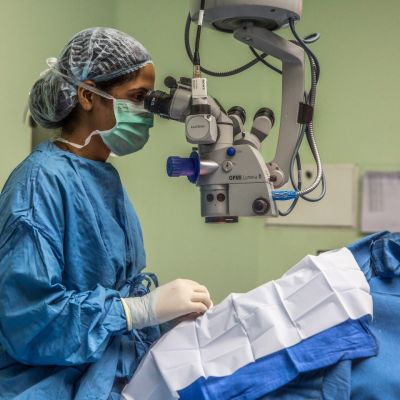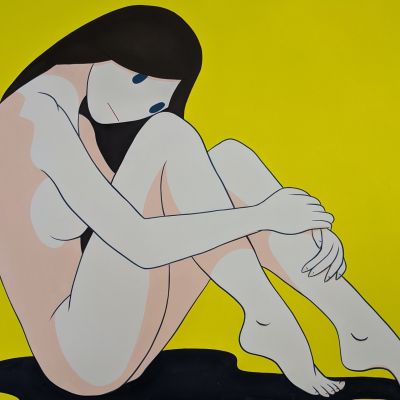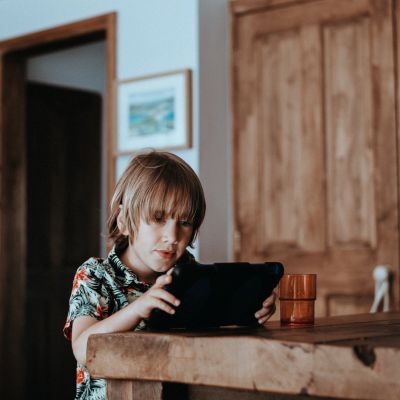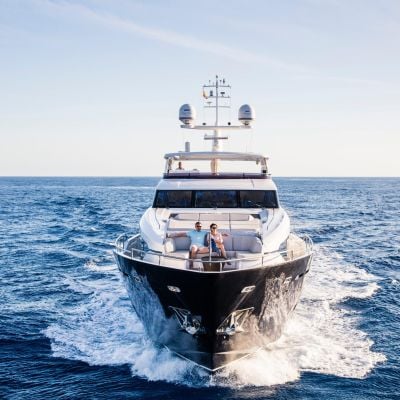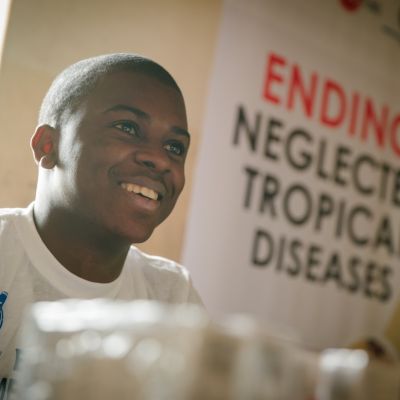20,000 Leagues Under The Sea
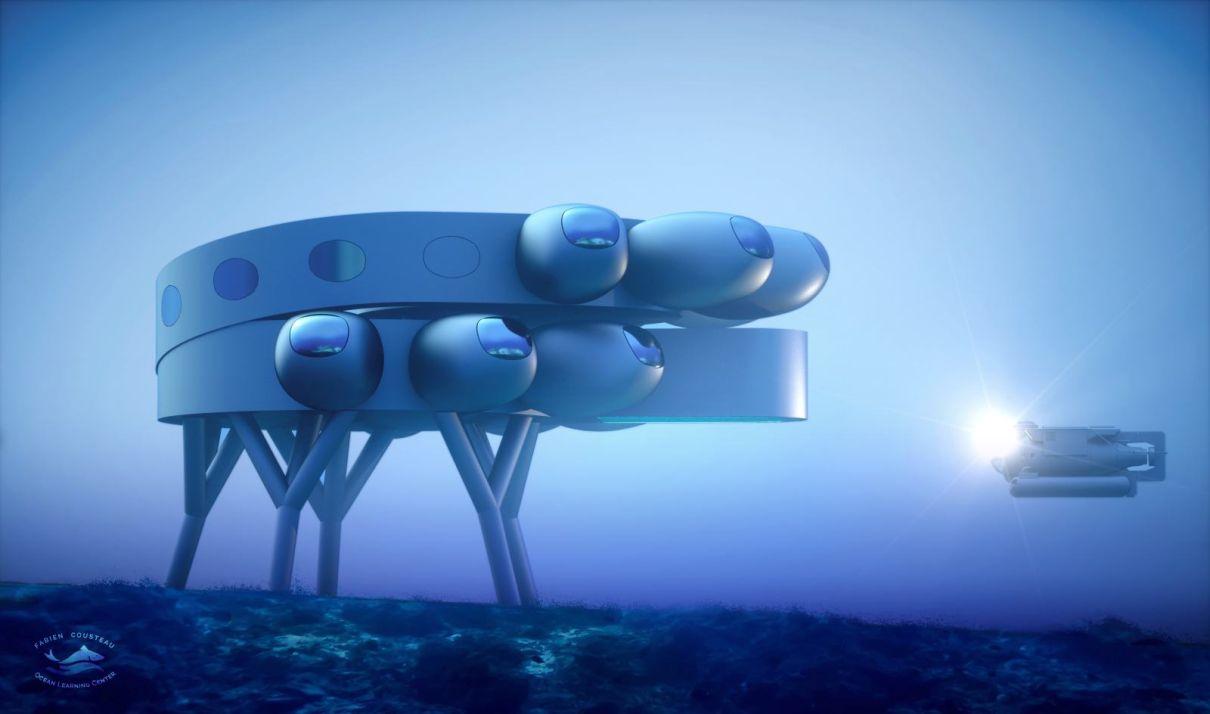
Fabien Cousteau, grandson of the world-famous ocean explorer Jacques, is set to revolutionise our understanding of the deep sea.
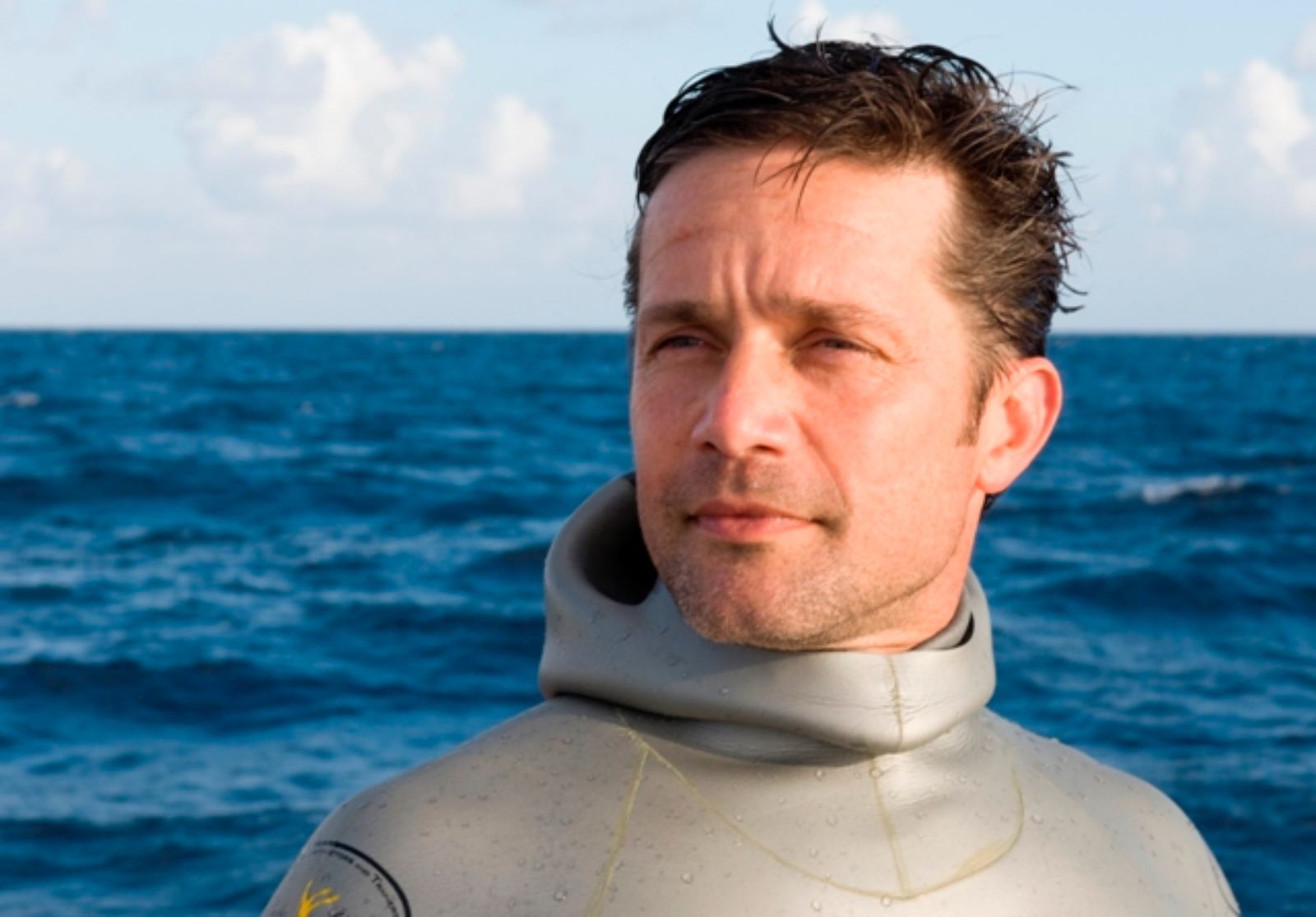
As the first grandson of the great ocean explorer and conservationist, Jacques-Yves Cousteau, Fabien Cousteau spent his early years aboard his grandfather’s ships Calypso and Alcyone; learning how to scuba dive on his fourth birthday.
As a child, he spent six weeks with his grandfather in Papua New Guinea, in particular on the island of Wuvulu, where he learned how to fish with his bare hands. He vividly recalls his grandfather’s tales of adventure, especially living under the sea for seven days. Jacques Cousteau was the original aquanaut, the first to build an underwater habitat in the early 1960s off the coast of France, called Conshelf. It was a project that evolved to see how man could live underwater continuously at pressure depth.
“It fascinated me, the idea of being a real-life Captain Nemo,” says Fabien over a Zoom call from his home in New Jersey, US. But the most important lesson was about conservation. “Being in the field with pioneers such as my grandfather and those on the crew of the Calypso, I was taught that ccean is life. No ocean, no life. No healthy ocean, no healthy future.”
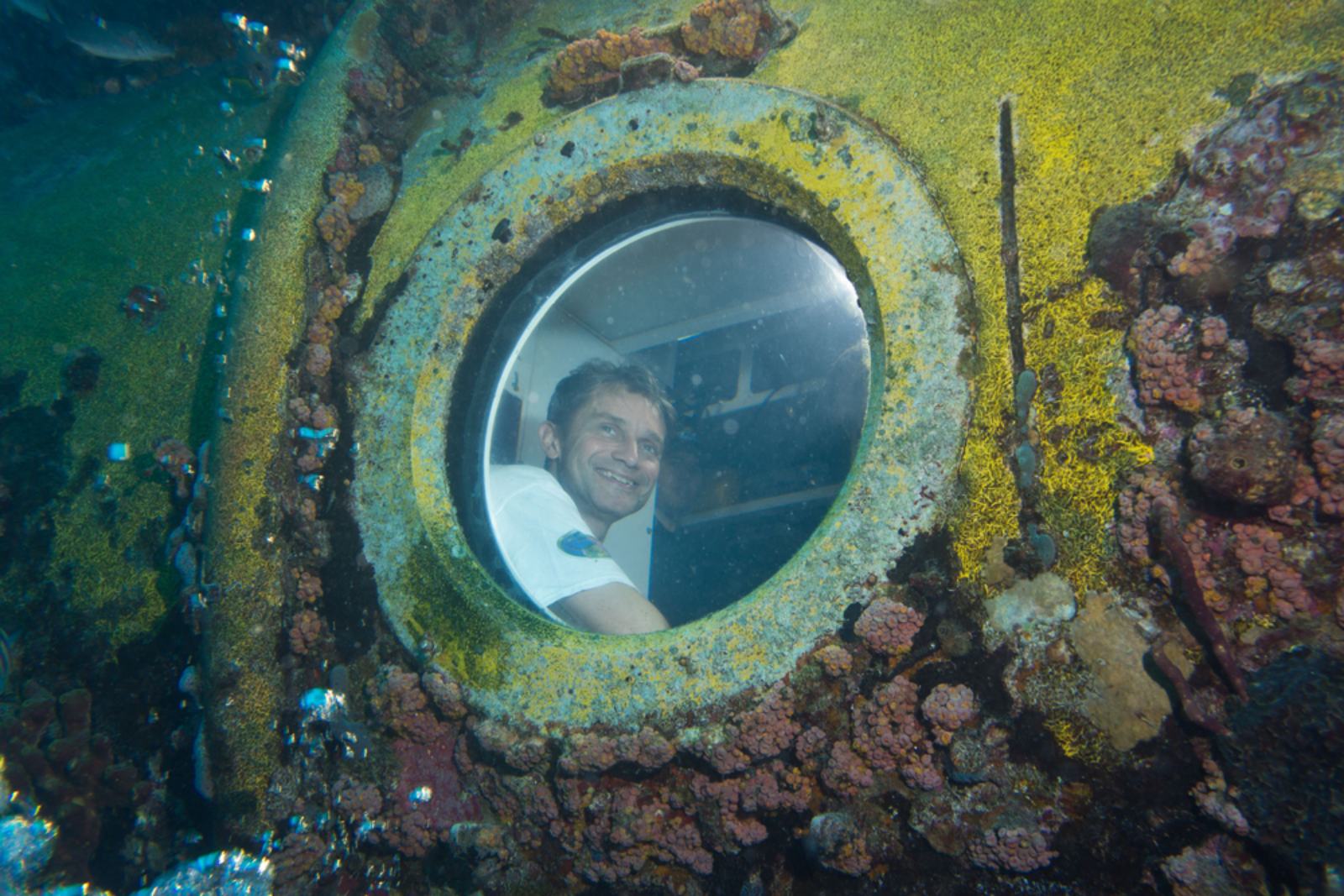
Today, Fabien is an aquanaut and oceanographic explorer who is honouring his grandfather, taking Jacques’ research several leagues deeper. In 2014 Fabien spent 31 days submerged 50ft under the Florida sea aboard the Aquarius, the world’s only underwater marine laboratory, owned by the National Oceanic and Atmospheric Administration.
It allows scientists to do more study in short periods of time as, instead of diving and surfacing and diving again, they live underwater, so that they don't have to decompress. He joined renowned marine biologist Sylvia Earle, who was also carrying out a mission down there.
Scientific research that would have taken three years, Fabien and his team achieved in one month. During their time they made 12 major discoveries and published 9,800 articles with universities, including the Massachusetts Institute of Technology and the University of Florida. Some of the most important discoveries made aboard the Aquarius relate to the damaging effects of ultraviolet light on coral reefs, geological studies that use fossil reefs to better understand the significance of present-day changes in coral reefs, research that is rewriting the book on how corals feed. He says he felt very sad to return to the surface - in a perfect world, Fabien would consider gill implants - and only half-joking.
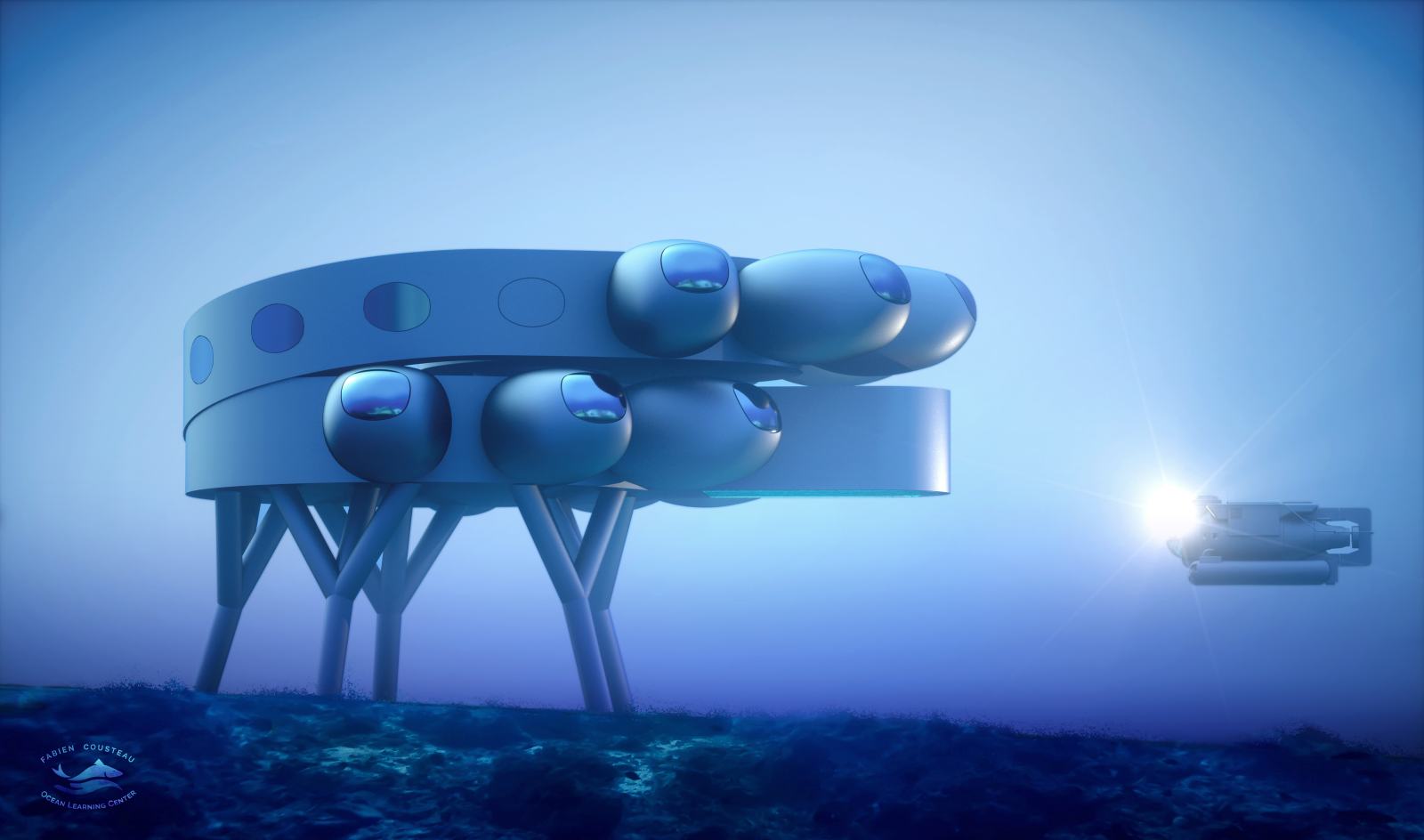
But, more importantly, the Aquarius mission showed Fabien that people are incredibly curious about what lies beneath the waves. Over the course of the month it reached 100,000 students in classrooms via live Skype sessions. “We were showing them the [critically endangered] goliath grouper and spotted eagle ray using this amazing technology. These kids had so many questions, such as ‘where do you poop? How do you get your energy? What is that species? We had to go on and on.
“It showed me there was an enormous hunger in the general public for seeing more of our life-support system.”
Roll forward six years and Fabien is planning a one up to the Aquarius that will revolutionise marine research. The so-called Proteus will be an underwater habitat at around 60ft underwater off the coast of the Dutch Caribbean island Curacao, and what he calls the International Space Station of the sea. He hopes to have it completed in 36 months, provided they can raise around US$135 million through ultra-high-net-worth private donors and institutions to make it a reality. He says for those wanting to support the project there will be ‘naming opportunities’: “You could have your name over the wet porch.”
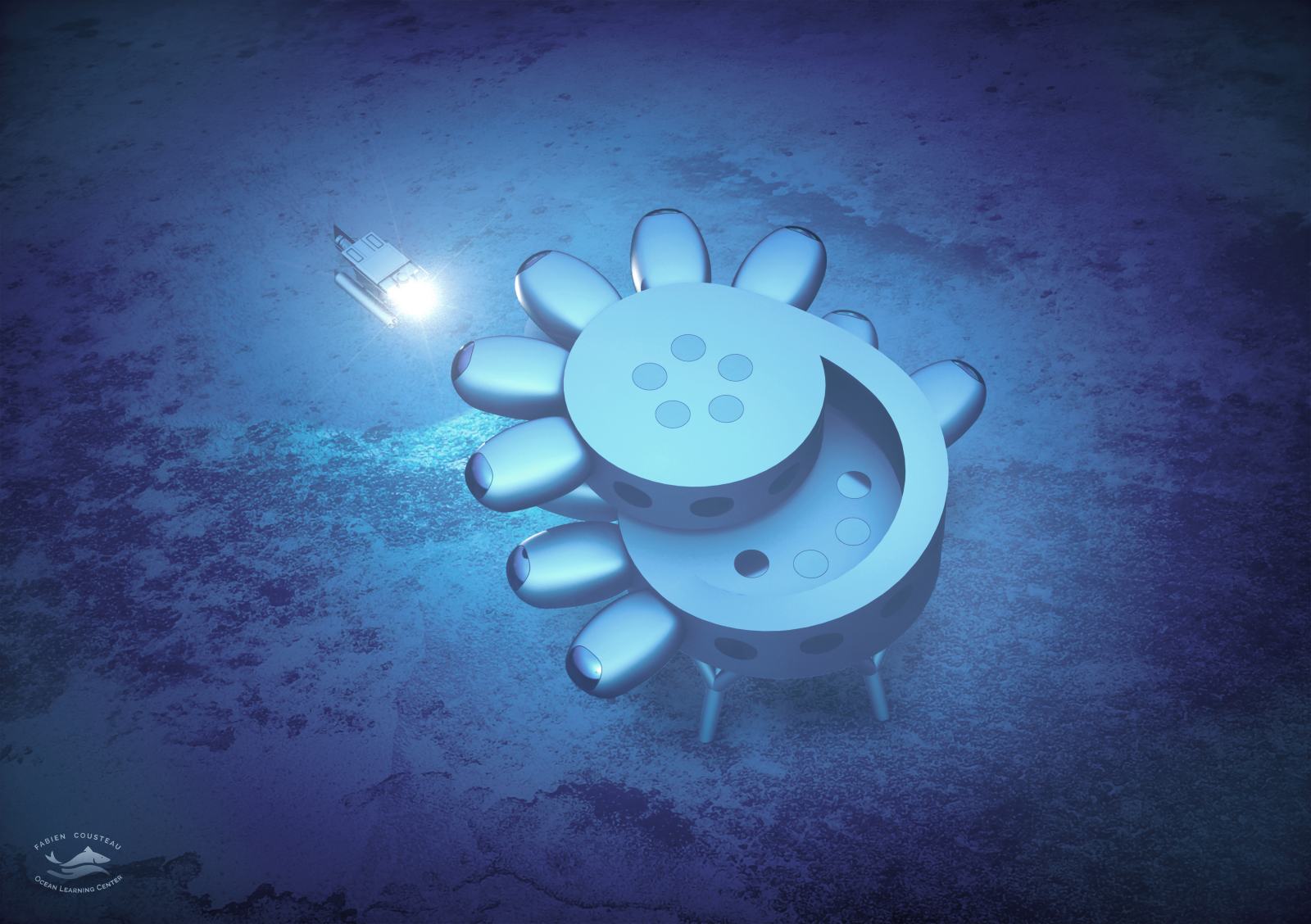
A futuristic space pod dreamed up by Swiss designer Yves Behar, Proteus will allow some 12 scientists to live on board for a potentially unlimited amount of time, analysing samples at depth, rather than risking them being corrupted by taking them to the surface. There will be a kitchen, a greenhouse to grow hydroponic vegetables, private chambers to “mentally decompress”, as well as two state-of-the-art laboratories.
Fabien is particularly excited about the potential discoveries for medical biochemistry, perhaps even helping with a vaccine for COVID-19. He points to life-changing discoveries from the sea, for example, certain deep-water sponges produce an anti- cancer chemical that may be effective in the targeted treatment of leukaemia, which does less collateral damage than chemotherapy. Sea-snail venom is being developed as a long-lasting treatment for chronic pain, which has proved much more effective than morphine with fewer side-effects. There are 45 other marine treatments currently undergoing US Food and Drug Administration (FDA) trials.
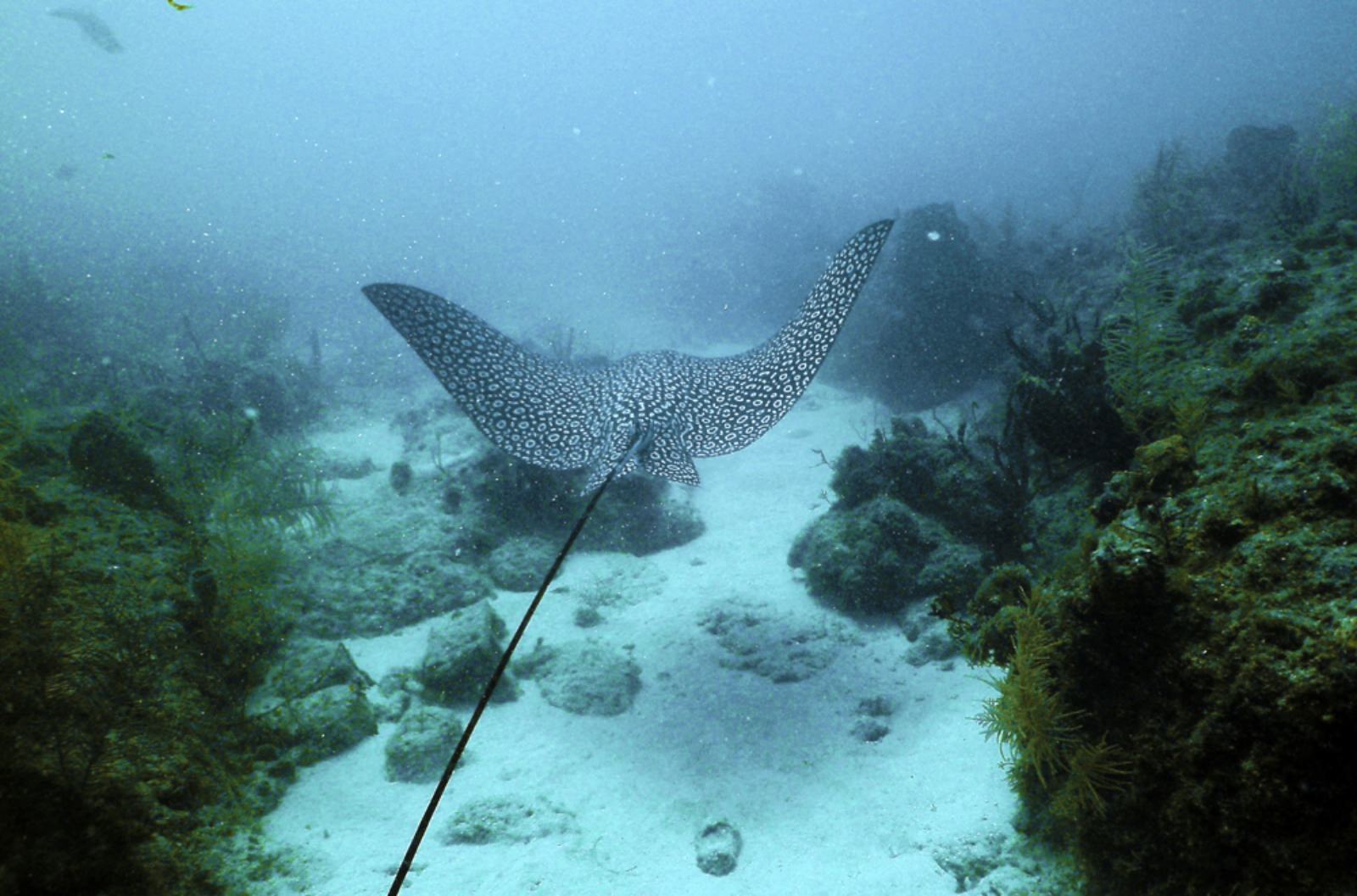
“Our mantra is to provide scientific data and research and capability no other platform allows, but it is a unifying platform that gives people a sense of wonder about this alien world we know so little about,” says Fabien.
On the environmental side, he believes Proteus will also help to better predict storm surges and help prepare for natural disasters by using autonomous underwater vehicles to monitor changes in salinity and temperature. While this would provide only local information, it is Fabien’s long-term goal to have seven Proteus type stations, one off the coast of every continent, to cover global weather patterns.
He expects the biggest challenges for the scientists living underwater will be human and will come down to mental health.
“One of the most difficult parts of Mission 31 was finding the space to decompress mentally — to have time alone once inside Aquarius. It’s about the size of a school bus, and six of us were there at once. That’s in part what makes me so excited about Proteus: its scale, the fact that it will be larger, to not only accommodate more scientists and aquanauts at once, but also to more acutely address many of the mental challenges that come with living underwater."




